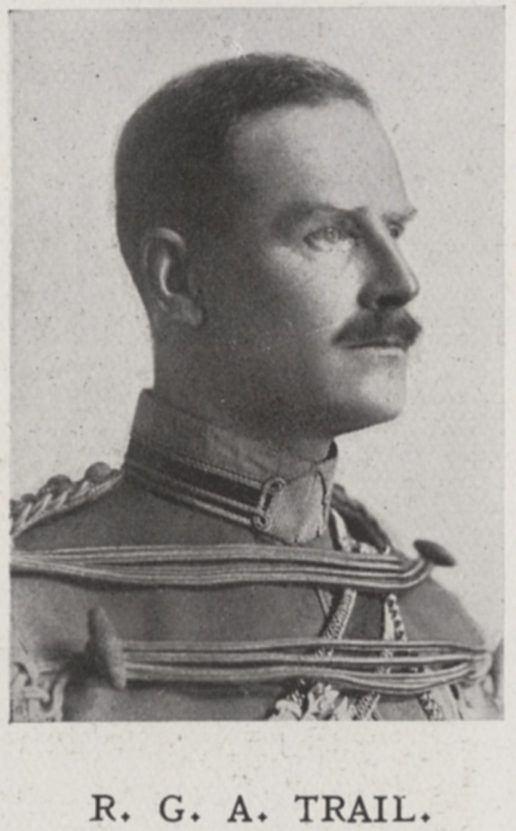Trail, RGA
(1879 - 1917)

Key Facts
DATE OF BIRTH:
11th December 1879
YEARS ATTENDED THE COLLEGE:
1892 - 1898
HOME ADDRESS WHEN AT THE COLLEGE:
5 Manor Rise Terrace, Lordship Lane
REGIMENT
Queen Victoria's Own Corps of Guides, Indian Army
FINAL RANK:
Major
DATE OF DEATH:
1st December 1917
AGE AT DEATH:
37
WHERE HE DIED (or was wounded)
Tincourt
LOCATION OF GRAVE OR MEMORIAL:
Tincourt New British Cemetery. 3 D 14
Major Robert George Anthony Trail
Robert was born on December 11th 1879 in Lahore, the fourth son of David Trail, a Colonel in the Royal Engineers, and his wife, Jane. By 1892 the family was resident in London and in July that year he started at the College, following in the footsteps of two of his elder brothers who would later be joined as Dulwich boys by a fourth brother. Robert left the school in the spring of 1898, having in his final year acquitted himself well as a sportsman, playing for that year’s 1st XV as well as being College champion in the half mile race. After leaving he took up a place at Sandhurst, where he was a cadet for around 18 months, passing out in January 1900. He joined the Indian Cavalry in 1901 and was promoted to Lieutenant the following year. In 1908 he held the position of Post Staff Officer at Galanai, and that year took part in the Mohmand Expedition before, in January 1909, being promoted to Captain and transferred to the Khyber Rifles.
When war was declared in the summer of 1914 Robert was at home in England on leave, and he spent a short period at the 13th Cavalry Depot in Colchester, before being granted six months sick leave that October. Upon his return to the forces in the spring of 1915 he was sent over to France where he spent the next nine months or so serving with the Bengal Lancers. In January 1916 he was appointed Special Service Officer with the Jodhpur Lancers, and a month later was promoted to the rank of Major, at first on a temporary basis. On December 1st 1917 he was serving in the trenches at Villers-Guislain, not far from Cambrai, when he was seriously wounded, succumbing to his injuries in a casualty clearing station later that evening. He was survived by his widow, Mildred, whom he had married in early 1914.